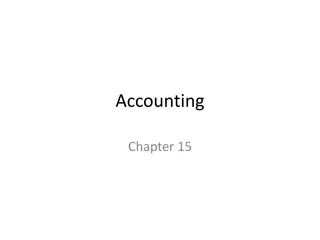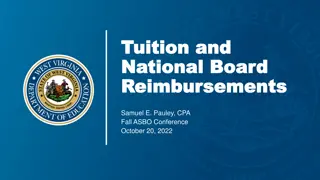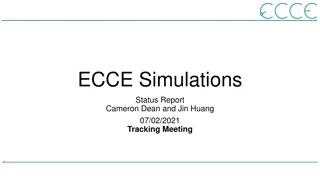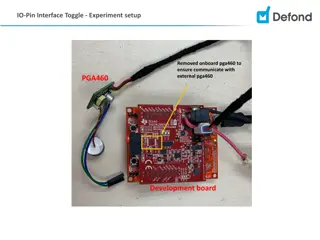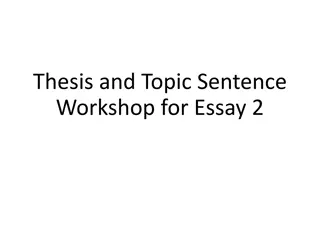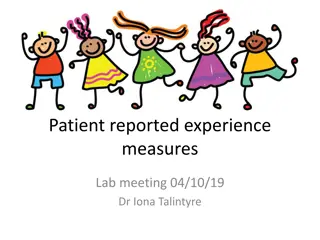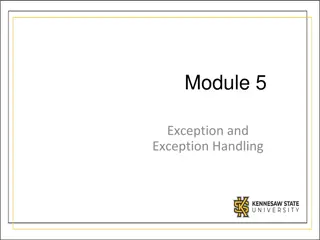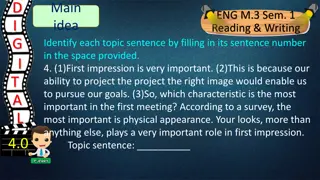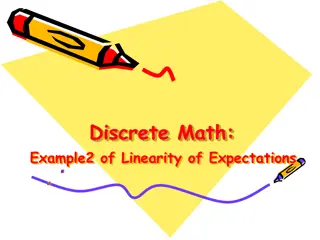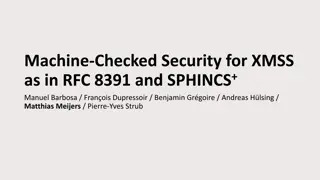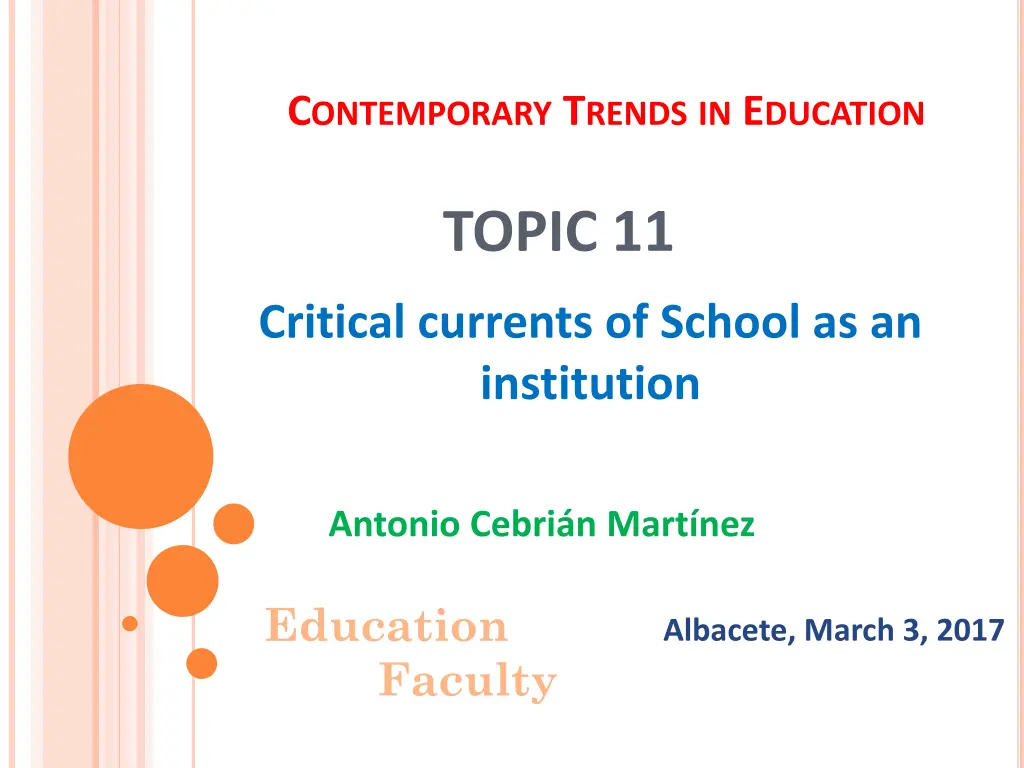
Critical Currents of School as an Institution: Neo-Marxist Critiques and Social Movements
Explore the historical rejection and critique of traditional schooling, including neo-Marxist perspectives, societal demands for education, and the influence of the Frankfurt School on critical theory. Discover the reasons behind the rise of the "neo-conservative" school efficiency movement and the rejection of capitalist ideologies in educational institutions.
Download Presentation

Please find below an Image/Link to download the presentation.
The content on the website is provided AS IS for your information and personal use only. It may not be sold, licensed, or shared on other websites without obtaining consent from the author. If you encounter any issues during the download, it is possible that the publisher has removed the file from their server.
You are allowed to download the files provided on this website for personal or commercial use, subject to the condition that they are used lawfully. All files are the property of their respective owners.
The content on the website is provided AS IS for your information and personal use only. It may not be sold, licensed, or shared on other websites without obtaining consent from the author.
E N D
Presentation Transcript
CONTEMPORARY TRENDS IN EDUCATION TOPIC 11 Critical currents of School as an institution Antonio Cebri n Mart nez Education Faculty Albacete, March 3, 2017
OVERVIEW 1. Introduction: socio-ideological context of school criticism 2. A society without schools: de- schooling 3. Neo-Marxist critique of school 3.1 From pessimism to desire: theories of reproduction 3.2 From desire to hope: theories of resistance
1. INTRODUCTION: SOCIO-IDEOLOGICAL CONTEXT OF SCHOOL CRITICISM Historically some rejection towards the school although no organized movements against, until the last fifty years (1960s) They explicitly reject the world of school: Pre-dominance of the authority on freedom Mandatory school attendance School does not guarantee equal opportunities Neo-conservative and capitalist ideology (school as a factory assembly line) Cancels creativity and independent reflection Rejection of the discourse on excellence Mechanistic-style criticism in schools False axiological, political and cultural neutrality
1. INTRODUCTION: SOCIO-IDEOLOGICAL CONTEXT OF SCHOOL CRITICISM Historic context: Consolidation of Western education systems Increased social demand for education Absolute confidence in equal opportunities through education Extension of compulsory schooling as long as possible Obsession with school effectiveness
1. INTRODUCTION: SOCIO-IDEOLOGICAL CONTEXT OF SCHOOL CRITICISM Reasons for the birth of this movement: "Neo-conservative" school search for efficiency Radical social consciousness and answer to the established power and institutions (school) Rejection of capitalist society whose schools respond to industrial needs and contribute to economic productivity Philosophical inspiration of the Frankfurt School influenced by Freudo-marxism (psycho-analysis plus Marxism) and which formed the first stage of critical theory Habermas philosophy that forms the basis of the current second stage (communicative action and deliberative democracy) Coleman Report of 1966
1. INTRODUCTION: SOCIO-IDEOLOGICAL CONTEXT OF SCHOOL CRITICISM COLEMAN REPORT "Neither the amount of money devoted to educational matters nor the qualitative differences between schools and others, influence the final performance of students What makes the difference is the family background, social class and the immediate environment Non-school factors much more important than school factors for children School, by itself, made no significant contribution to equal opportunities or democracy
2. A SOCIETY WITHOUT SCHOOLS: THE DE-SCHOOLING Educational future outside the school institution Main influences: Summerhill Free Schools (freedom and natural goodness of the child) Socialist theories ("death of the school" and class struggle) Personal group relationship (social inequality and conflict) Paulo Freire (personal conception of the human being, unfinished) Coleman Report Critique of technological society for threatening individual freedom Critique of consumer society and new modes of industrial production "The school has become the universal church of technological society" "It introduces the neophyte into the sacred race of progressive consumption"
2. A SOCIETY WITHOUT SCHOOLS: THE DE-SCHOOLING Extremely critical speech against the school institution: It only produces school failure Reproduction of the consumer society and considered as a "capitalist enterprise" Myth of equal opportunity, not equal school for all and institutionalization of life School compulsion violates individual freedoms Imposition of truths and values as absolute visions
2. A SOCIETY WITHOUT SCHOOLS: THE DE-SCHOOLING Ivan Illich: De-schooling is key to achieving man's liberation To free society from all traditional forms of schooling (de-establishment or de-institutionalization) Not paying for schools with public money and not giving them any special social privileges Illich proposes to replace school systems with learning webs, with access to educational resources worldwide: Reference Services for Educational Objects Lists of Abilities Partner Search Service Referral Service for Independent Educators John Holt: Action is learning Activity is out of school Learning processes at school are different from those used outside school
2. A SOCIETY WITHOUT SCHOOLS: THE DE-SCHOOLING Paul Goodman: Abolished all types of schools for some courses Leave the school building for some classes Use the urban environment as a school Non-compulsory class attendance Delete exams and marks/grades De-centralize school institutions Open the school to community life (not de-institutionalization) using appropriate adults as educators even if they do not have relevant credentials Everett Reimer: Replacing schools with networks of opportunities that enable people to access essential educational resources: objects (documents and books) and people skilled in certain areas Both resources are available to the general public
2. A SOCIETY WITHOUT SCHOOLS: THE DE-SCHOOLING In the 70's this was utopian and unrealizable, but not today via the internet Movement of home-schooling, or schooling at home Rejection of compulsory schooling and the established educational system Born in the United States in the 1970s and influenced by Holt Families assume responsibility for the teaching and learning process Mainly Nursery and Primary Education Combination of school programs with other free activities Includes ecological topics and returns to nature Surviving self-sufficiently in rural settings Followed by religious fundamentalists, anti-government activists, military families, parents of children with special needs Secularization of public schools has caused a decline of moral values Public school with little discipline and little authority Education is the task of the parents and not of the State Alternative to the rise of the network society
3. NEO-MARXIST CRITICAL OF SCHOOL Not all students have equal opportunities for education Individuals with high potential do not always achieve school and work success Influence of social class, ethnicity and gender Education reproduces existing inequalities rather than overcoming and removing them Economic structure determines the educational system Only revolution will enable social change
3. NEO-MARXIST CRITICAL OF SCHOOL 3.1 From pessimism to desire: theories of repetition Education linked to social and economic institutions The School perpetuates and reproduces the capitalist system Education does not act as an engine of social change promoting greater equality and social justice The educational system reproduces dominant social class structures through two means of reproduction: Legitimation: economic success depends on the possession of certain skills, better prepared or educated obtain higher positions Socialization: docility, passivity and obedience are rewarded and creativity and spontaneity are penalized Principle of correspondence: social relations within the educational system corresponds to social relations in the workplace (authority and control) Importance of the cultural experience of the child: school legitimizes the power and culture of the dominant classes Hidden curriculum mediated by students' culture
3. NEO-MARXIST CRITICAL OF SCHOOL 3.2 From desire to hope: theories of resistance Vision similar to the previous one in terms of the social and economic control of schools, which reproduces the principles, values and privileges of existing elites Not absolute determinism as before, but it conveys hope for the possibility of changing reality Critical pedagogy: global reflection of the educational situation but from a different point of view of that reality (to intervene in society with a critical sense and a transformative will). Three great concepts: Idea of resistance as an alternative to reproduction: resistance to class oppression of the school and imposition of the dominant culture Teachers as transformative intellectuals as the engines of social and cultural transformation by questioning the dominant values. They must reformulate the curriculum to seek emancipation and global social improvement (democratic practices, economic justice and cultural diversity) Schools as democratic public spheres that promote social justice, equality and diversity through debate, dialogue and the exchange of different points of view



